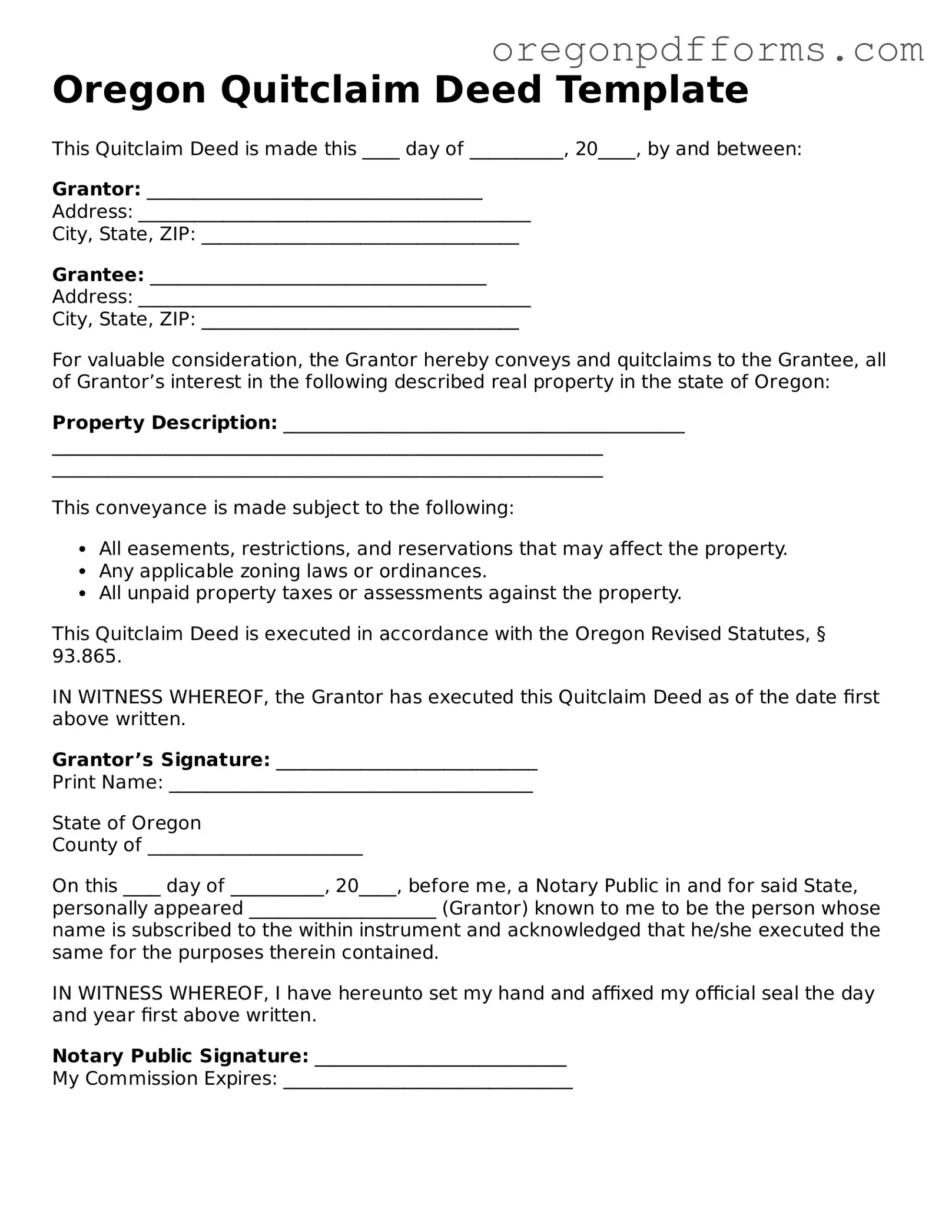Valid Quitclaim Deed Document for Oregon
A Quitclaim Deed is a legal document used to transfer ownership of real property from one party to another without any guarantees about the title's validity. In Oregon, this form serves as a straightforward means for individuals to relinquish their interest in a property, often used in situations such as divorce or estate settlements. Understanding the Quitclaim Deed is essential for anyone involved in property transactions, as it clarifies the rights and responsibilities of the parties involved.
Open My Quitclaim Deed

Valid Quitclaim Deed Document for Oregon
Open My Quitclaim Deed

Open My Quitclaim Deed
or
Get PDF
A few steps left to finish this form
Complete Quitclaim Deed online with easy edits and saving.